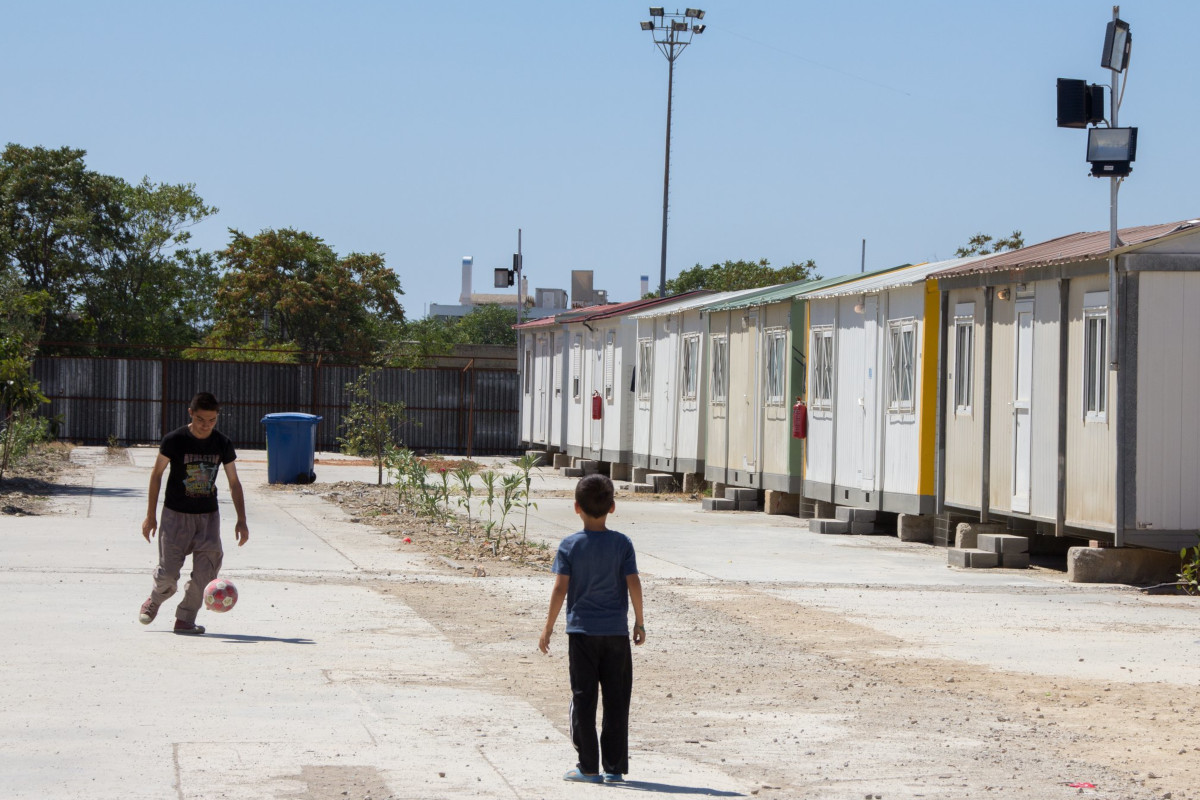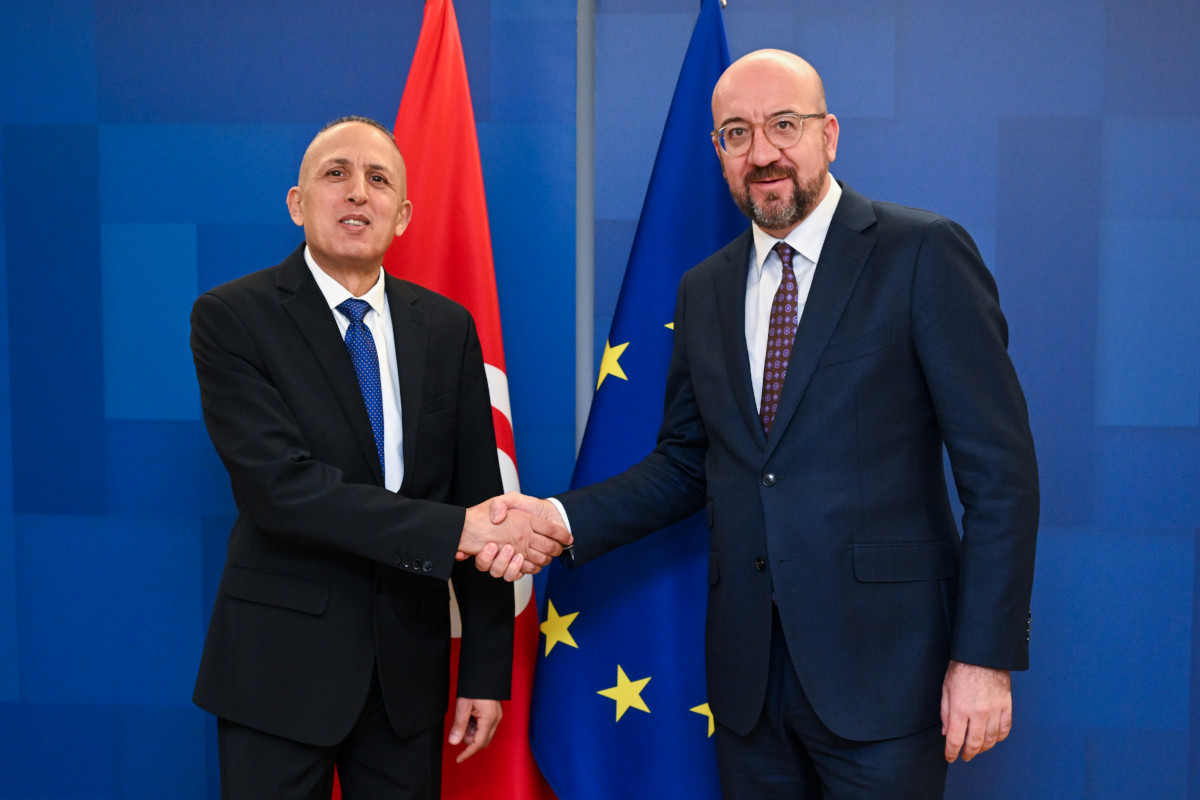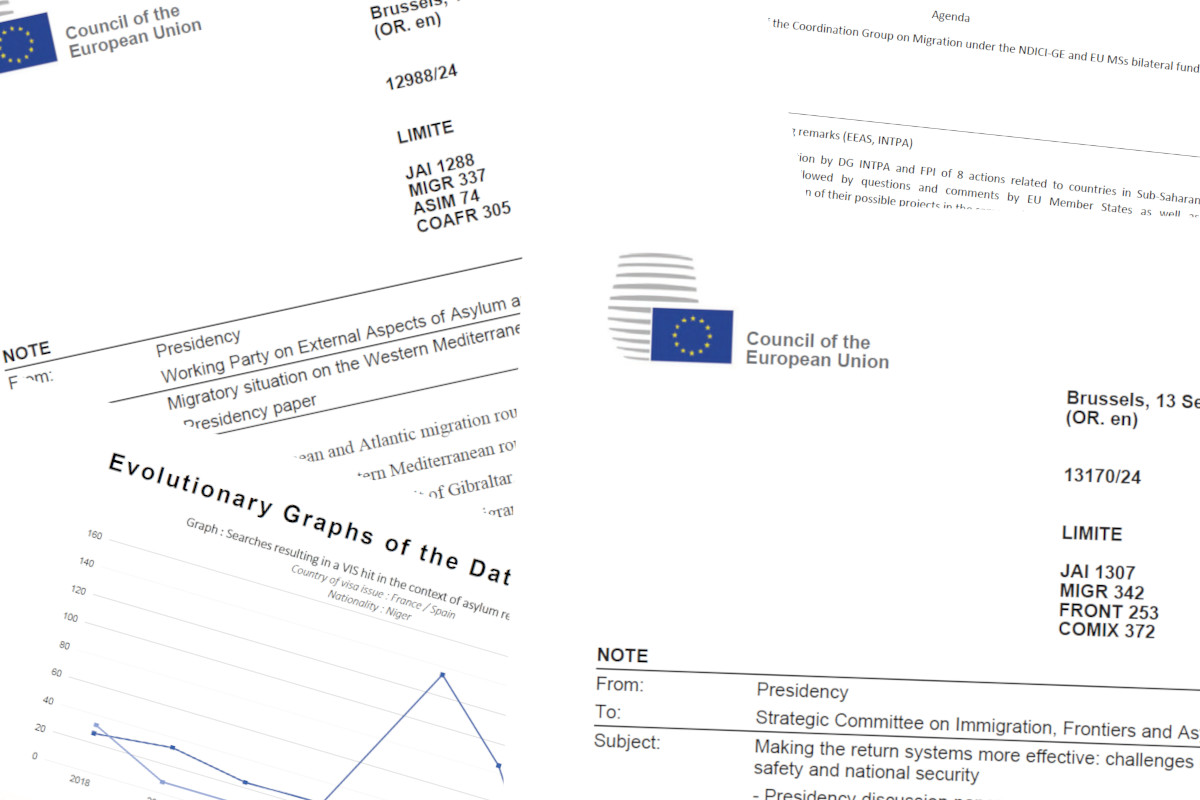EU: Hungarian Council presidency takes aim at refugees and asylum-seekers
Topic
Country/Region
03 October 2024
In a move that is unlikely to surprise anyone, the Hungarian Council Presidency has kicked off discussions on reviewing the status of international protection beneficiaries, and how member states deal with individuals whose asylum applications have been refused, but who cannot be deported.
Support our work: become a Friend of Statewatch from as little as £1/€1 per month.

Image: Jason Mavrommatis, Unsplash
International protection status
In two documents circulated amongst EU member state delegations at the end of September, the same government that is being fined hundreds of millions of euros for breaching EU asylum law sought the views of other member state delegations on recognised refugees and refused asylum-seekers.
The first sentence of the Presidency’s paper on beneficiaries of international protection (pdf) gives an indication of the thinking that lies behind it: “The non-permanent nature of protection is an inherent element of international refugee law, also set out by its cornerstone, the 1951 Convention Relating to the Status of Refugees.”
In line with this, the paper notes, some EU member states review individual status “automatically or in the context of the renewal of the beneficiary’s residence permit,” although this is not the case in all states.
“Nevertheless,” the paper points out, “the current asylum acquis does not impose a mandatory review of protection statuses within a certain period of time,” and notes that this has not changed with the EU’s new asylum legislation.
The paper goes on to consider a number of reasons why national authorities might review an individual’s refugee or international protection status, such as changes in the political situation in their country of origin, or the fact that they have travelled to that country for one reason or another.
It notes by “way of illustration” that “national authorities or courts” may determine that a non-EU country can be considered safe for the purposes of deportation, “where there is generally and consistently no persecution.”
As highlighted by Steve Peers, a professor of EU law, the new Asylum Procedure Regulation introduces new sets of rules regarding “safe” countries, and there is now the possibility for a common EU list of such countries.
The Hungarian Presidency document does not draw any conclusions or make any proposals, but was circulated to start a discussion within the Council’s Asylum Working Party, at its meeting on 1 October.
Negative asylum decisions
A separate paper (pdf), on individuals whose asylum applications are rejected but who cannot be removed from EU territory, was circulated for the same reason.
This notes that in 2023, more than one million asylum applications were filed in EU member states, and the recognition rate rose to 53% - but “many applicants are still not eligible for international protection.”
The paper highlights that the EU’s new migration and asylum laws introduce some changes to how rejected asylum seekers are to be dealt with, including by “closing the time gaps that currently exist between a negative decision on an application for international protection and the issuing of a return decision.”
However, “there are situations where the return cannot be carried out because certain conditions are not fulfilled or because the principle of non-refoulement applies” – that is, even if a person is not considered as meriting international protection, it may still be impossible to deport them to their country of origin.
“Certain alternative national statuses are already granted by some Member States to deal with these situations,” the Presidency notes, but “in many cases, rejected asylum applicants remain in a state of limbo on the territory of the Member State for a longer period, while awaiting their return to be carried out.”
The paper aims to start a discussion in the Asylum Working Party on how that category of individuals are dealt with in different member states – presumably with a view to moving towards greater harmonisation of different national practices.
One issue in particular seems to be of importance to the Presidency: “care and reception of persons whose asylum application has already been rejected by a final negative decision,” with the text emphasised in the original document.
Given the Hungarian authorities’ disdain for migrants and refugees, it is likely that they would prefer to see downward harmonisation, with fewer rights and protections for individuals.
Substantive changes to the law will not, however, take place during the Hungarian term in the Council Presidency, which ends in December.
Questions for discussion
Both papers end with a set of questions for other member state delegations.
The document on reviewing international protection status asks:
Do you regularly review the status of refugees and beneficiaries of subsidiary protection? Is the review mandatory under your national legislation?
What are the conditions to trigger such review?
What particular challenges do you face in the context of review procedures?
The document on negative asylum decisions asks:
Do you provide accommodation and support for persons whose asylum applications have been rejected by a final decision or for non-removable returnees? If so, what kind of services (i.e. healthcare) and accommodation is provided and for how long? Do you handle these two categories separately?
Which authority or organisation is responsible for the care of these persons?
Does any aspect of the reception conditions change if a subsequent application is lodged?
What difficulties have you identified in providing reception conditions for these categories of migrants and how could this topic be addressed at EU level in order to increase coherence between national approaches while reducing the administrative burden?
Hungary, along with the Netherlands, has said it wants to opt out of the EU's new asylum and migration laws, which is legally impossible without an amendment to the EU treaties.
The alternative is for Hungary to refuse to implement the laws and face huge fines - assuming the Commission is willing to play its role as enforcer.
Documentation
- Status and reception of applicants for international protection following a negative asylum decision - Discussion paper (Council doc. 13517/24, LIMITE, 25 September 2024, pdf)
- Review of the status of beneficiaries of international protection - Discussion paper (Council doc. 13518/24, LIMITE, 25 September 2024, pdf)
Our work is only possible with your support.
Become a Friend of Statewatch from as little as £1/€1 per month.
Further reading

Out of sight, out of mind: EU planning to offshore asylum applications?
In a letter sent to EU heads of state last month, European Commission president Ursula von der Leyen named 2024 “a landmark year for EU migration and asylum policy,” but noted that the agreement on new legislation “is not the end.” She went on to refer to the possibility of “tackling asylum applications further from the EU external border,” describing it as an idea “which will certainly deserve our attention.”

Implementing the Pact: obligation for fundamental rights monitoring
The recently adopted Screening Regulation under the EU Pact on Migration and Asylum sets out several requirements for the establishment and operation of a mechanism for monitoring the fundamental rights of people subject to “screening” procedures at the external borders. Based on a recent Council document on the implementation of article 10 of the Screening Regulation and EU Fundamental Rights Agency guidance, this article provides an overview of what is required and discusses some potential challenges that may arise.

New EU migrant smuggling law: member states keen on maximum criminalisation
The EU is moving towards adopting a renewed law to criminalise migrant smuggling, and member states in the Council have started making progress towards a position for negotiations with the Parliament. Some governments appear to favour maximum criminalisation, calling for a broad definition of smuggling to facilitate prosecutions – a position that has been taken on board by the Belgian Council Presidency in an initial compromise text.
Spotted an error? If you've spotted a problem with this page, just click once to let us know.

